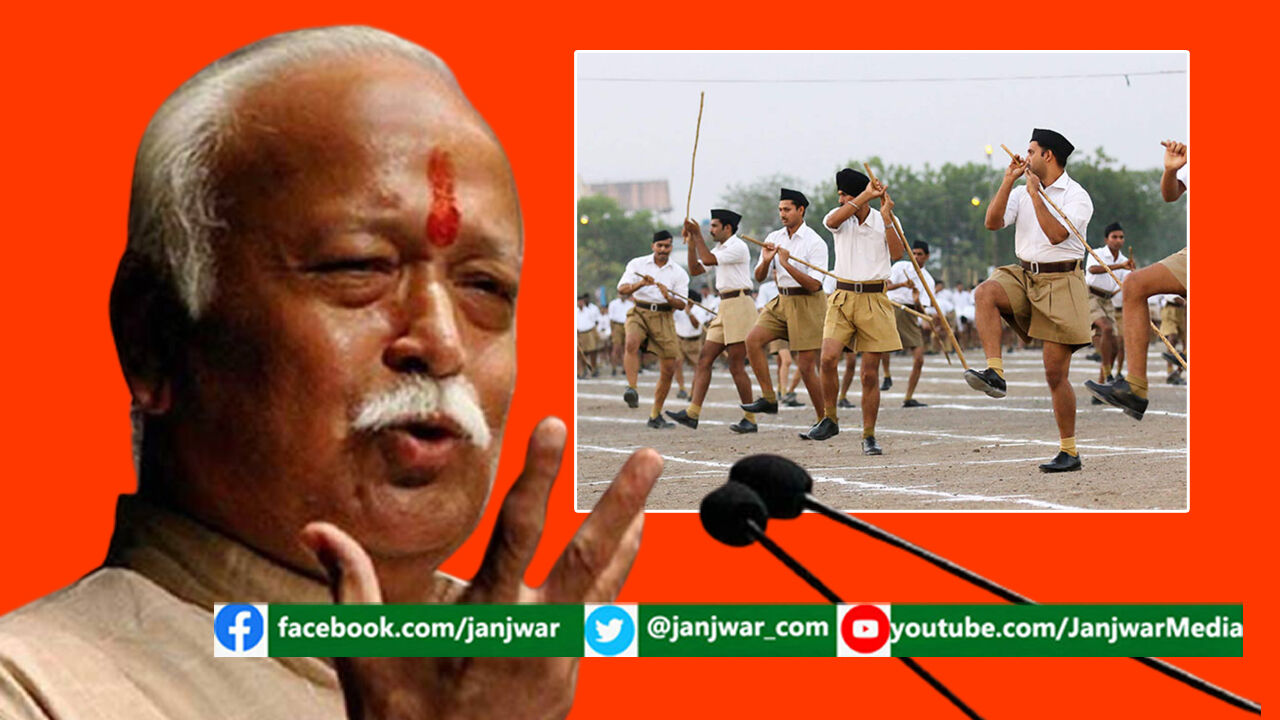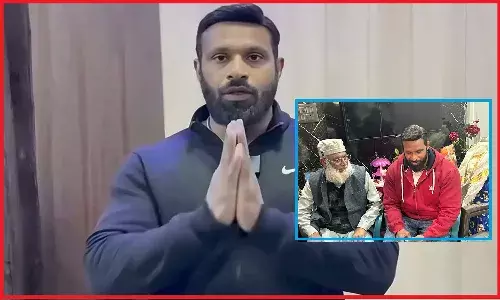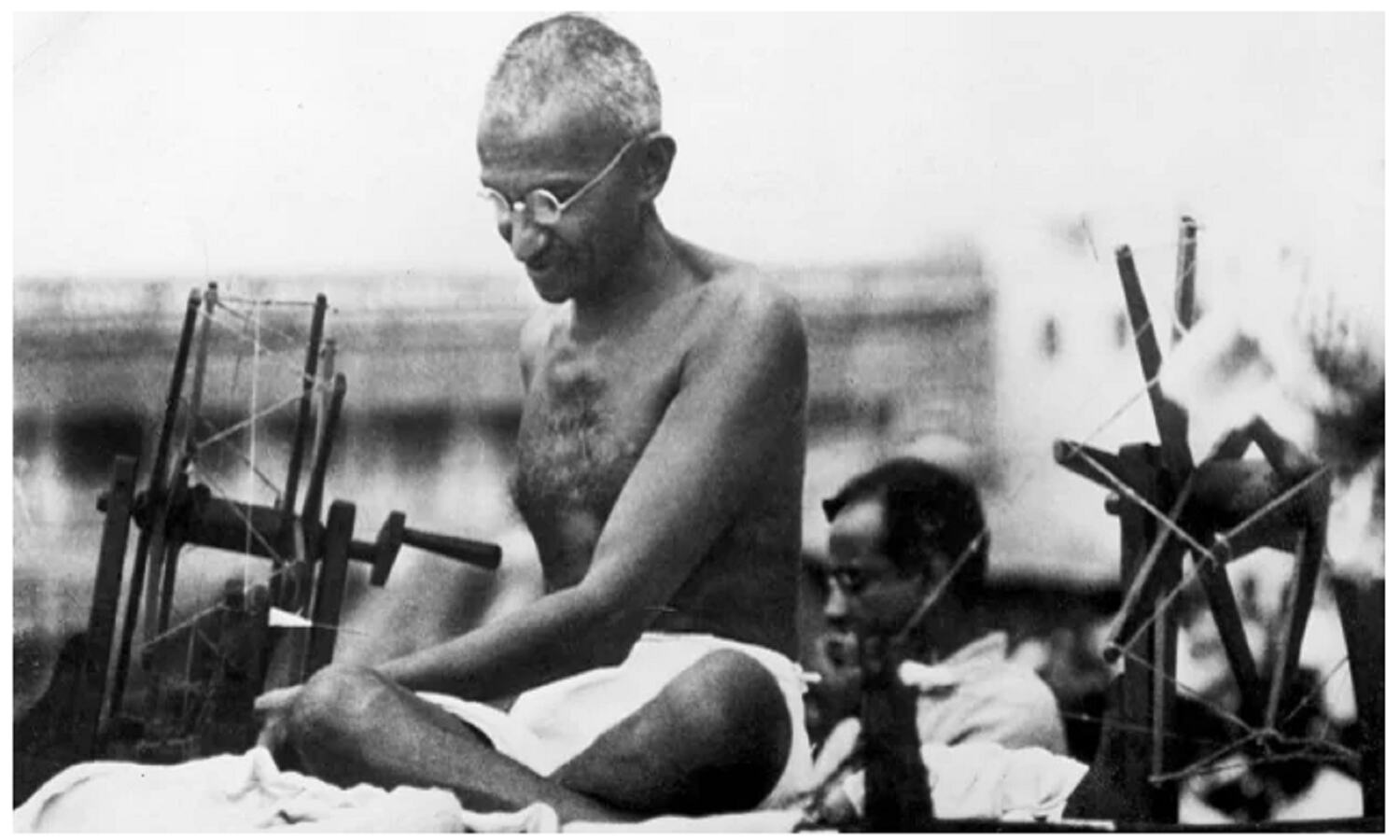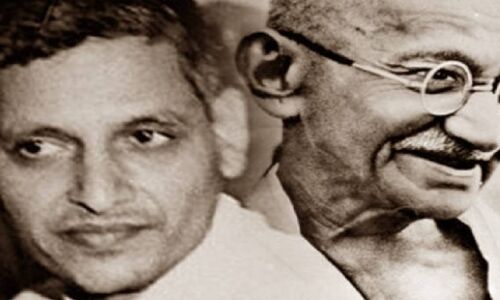Lockdown pushed both the Lawyers and the Clients on the verge of hunger in Bihar
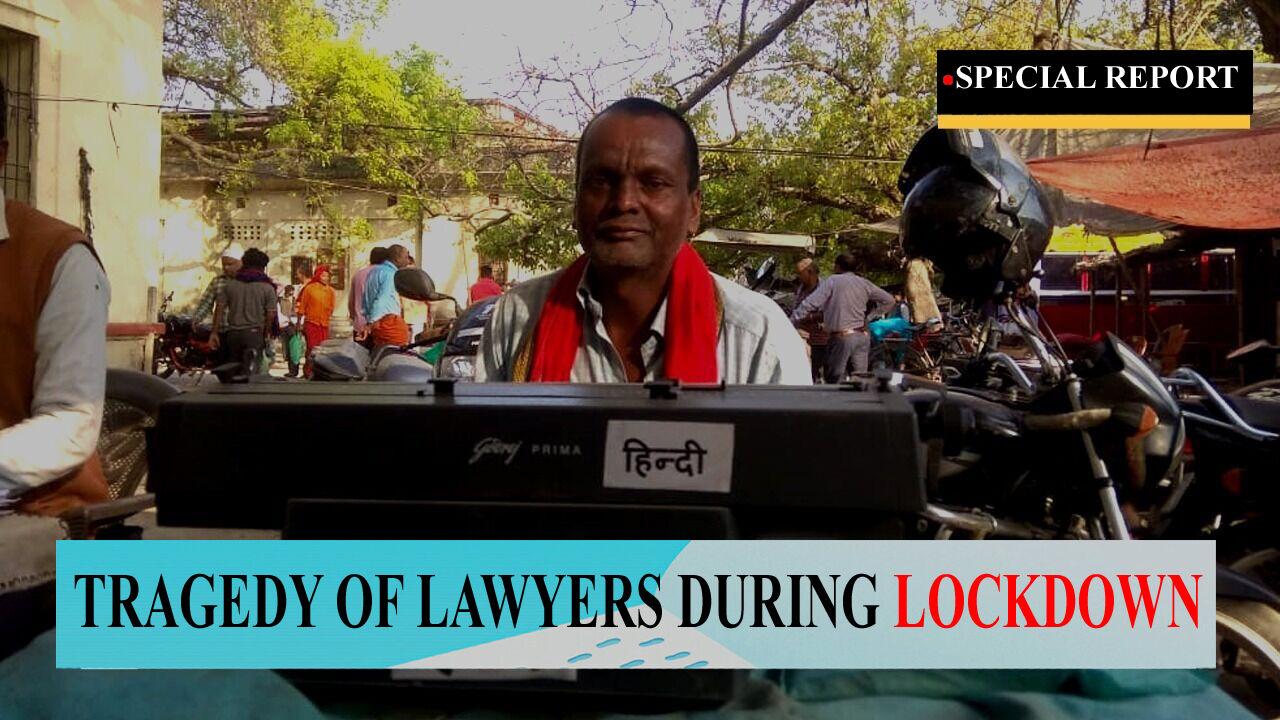
A report by Husain Tabish from Motihari
During lockdown the condition of lawyers had turned worse than what rickshaw-pullers and daily-wage earners faced. While the daily-farm labourers were not only getting the work, but were also being given ration at cheaper rates and financial aid in cash by the government, the lawyers had no work continuously for the full eight months. Yet they didn't get any kind of support.' Saying this, Mr. Vijay Kumar, a practicing lawyer on civil matters at Motihari (East Champaran) gets emotional.
He further says," The government deprives lawyers of its welfare schemes. In government's eye, a lawyer is supposed to be a well-off professional. But the reality is just the opposite. We have to earn daily to keep the kitchen-fire burning. Eighty percent of lawyers are economically weak. They don't have any other source of income. The lockdown literally broke their back. Had it been stretched further then surely the lawyers would have been at the top of those dying from hunger."
It should be remembered that the central government of Narendra Modi had imposed nation-wide lockdown in 5 phases from 24th March night to 30 June, though lots of concessions were given with the start of 5th phase. Beginning with 8th June, the government had allowed, in three phases, gradual opening of public places and the movement of the people. Despite these concessions, the economy suffered a lot during and after lockdown. In fact, not only the economy went from bad to worse, but as a result of increasing unemployment, poverty and hunger, the economic gap widened further. The lockdown also resulted in damaging the constitutional institutions.
Post-lockdown, if we leave aside some of the urgent criminal cases where bail was granted by the court, the court was totally shut for the cases related to serious crime, family matters, POCSO, and other civil matters. The court premises. which used to be full of life due to the activities of lawyers, clients, witnesses, various vendors and shopkeepers, suddenly turned into a place with dead silence.
If, during lockdown, the citizens were deprived of their Right to get justice, those contributing to the legal-judicial system and processes were also subjected to serious deprivations.
It was a great misfortune that the very legal fraternity, which helps others get justice, remained uncared for by the society and the government. The economic condition of most of the lawyers depends on daily hearing of cases and the fee realised from the clients on the daily basis. Due to closure of courts during the period of lockdown, this section was greatly affected and didn't get any help from any quarter.
The plight of lawyers in the time of pandemic was clearly visible in the eyes of advocate Manas Pandey. He says, 'Lawyers belong to that section of society which suffers the most. Corona made the newcomers in the legal profession suffer the most. In towns, they stay in rented houses and commute on bikes for which they have to pay EMI every month. More than 200 practicing lawyers in Motihari went back to their respective villages due to lack of work during Corona. Many of them have not been able to pay the house rent and grocery bills. The troubled time brought in by Covid-19 had forced them to spend their savings. Due to economic distress, many of them had to postpone the marriage of their daughters and many others were forced to discontinue the schooling of their sons. On top of it, the ailing lawyers could not get the medical attention on time.'
'Nonetheless, while the government and the society at large failed to come to our rescue, our clients came forward to help us in various ways. The clients living in villages brought groceries, vegetables and milk for their lawyers living in towns.' says Manas.
'During lockdown, along with the legal practice, we used to give coaching in the morning and evening to the science students of 12th class. But as legal practice came to a stand-still due to Corona, my coaching classes also got disrupted. With one stroke, both the sources of my income were gone. I do have a house in the village but our visits to the village home were infrequent. So it did not look proper to go back to the village at the hour of crisis. Who would have born the expenditure on our family? For us, it was very hard to pull on. I had to sell off my wife's jewellery. God forbid, no one should face such a situation,' saying this advocate Dheeraj Singh gets emotional.
Dheeraj further says, 'Lockdown has pushed most of the lawyers 10 years back in their life. It will take a lot of time to emerge from the situation. Some lawyers even died prematurely because of deteriorated economic condition and not getting proper treatment on time.'
Rajiv Kumar Dwivedi, Kanahiya Singh, Narendra Dev, Dhruv Pandey, Shambhu Singh, Satish Prasad Sinha, Kameshwar Prasad Sinha, Jayram Singh and Mohammad Qasim are among the 10 top lawyers of the town. Among these ten, 3 belong to OBC, though all the three have their surnames resembling with upper caste. These lawyers have all the modern technological facilities and a full-fledged team of junior lawyers. These 10 have the maximum number of clients. Even during lockdown, they did not face loss of cases. A strong infrastructure was available to them for virtual court hearings. That's why whatever little work was being undertaken during lockdown, was immediately falling into the lap of these 10 lawyers. Rest of lawyers could not be the part of the limited judicial process because most of them had no facility like smart phone, computer, laptop and internet at their homes. If, by chance, any one had these facilities, then they were not familiar with their use. That's why such lawyers could not get connected to the virtual court and its hearings. If we exclude these 10 lawyers from OBC, most backward caste and other castes, then rest of the lawyers are mediocre and don't have satisfactory practices.
Advocate Kumar Kunj Raman says, 'In this court premises, the number of such lawyers is maximum who earn 200 to 500 rupees daily. Beyond this there are lawyers who earn 5000 or 20000 or even lakhs of rupees daily, though such lawyers are very few in numbers. This income cannot be taken as the average earnings of the lawyers. There are some lawyers in the lower court whose per day income is almost zero.
Advocate Prabhu Sahni says, 'Apart from a few, most of the lawyers belonging to even upper caste are not enjoying good economic condition. They all got economically broke during the lockdown but could not admit it publicly. Whereas the plight of lawyers belonging to bahujan samaj was visible to all. Such has been their condition that one of the lawyers known to me was seen hiding his face with head-cloth(Gamcha) while driving an auto-rickshaw to earn his bread and another one of them was seen selling fruits on cycle.'
Lockdown woes and the plight of women lawyers
Former joint secretary of District Bar Association and a practicing lawyer in civil matters, Sujata Singh says, 'My husband used to teach in a polytechnic college as a guest lecturer. Since lockdown had resulted in indefinite closure of schools and colleges, my husband lost his job. As a result I went into deep stress..It was really very hard to come out of it.' Sujata Singh says further that she has three school going children. The plan to send them outside Motihari to study has been postponed as the economic condition of her family is currently not good.
When asked why the number of women practicing lawyers is so low in Motihari, Sujata replied, 'Honestly, this profession is not meant for women. No woman comes to the court just to show off. They adopt this profession and keep continuing because they have no other alternative.'
According to Sujata, 'The women lawyers cannot run from one court to another as their male counterparts do. They are unable to work here at the required speed. Here you have to catch hold of a prospective client, the client does not come automatically to you.
'Pointing towards another problem, she says, 'The clients have less faith on women lawyers than their male counterparts. They keep doubting women lawyers' capability to win the cases. Many times it happens so that beside a woman lawyer the client also engages a male lawyer.' When Sujata Singh was requested to say this in front of the camera, she refused and even did not allow us to take her photograph.
But Ritu Kumari, a woman lawyer practicing in the same court, does not agree with Sujata Singh. She says, 'Today, women are doing excellent jobs in all fields. They are creating their own identities and setting targets for themselves. Women lawyers will have to develop self-confidence. I have been practicing law for the last seven years and did not face any difficulty.'
A senior advocate Kumari Asha says, 'I take up criminal cases. I never ever faced any problem. During lockdown also, I did not face much difficulties as my two sons working in the private sector in Delhi had their jobs intact during Corona.' Nevertheless she admits that it was a horrible time for her colleagues. She says that nowadays people don't share their problems, therefore it is very difficult to know the actual degree of economic distress faced by the lawyers. But, at the same time, this is also true that during lockdown many lawyers had nothing to eat.
A Muslim woman lawyer Masoom Jannat says, 'The announcement of lockdown and consequent closure of courts are memories full of horror. It will take a long time to forget them. When lockdown was announced, I was a few months pregnant. So I needed more money at that time but suddenly my very source of income was snatched away from me. But troubles did not stop there. My husband has poultry farming business. During lockdown, it was rumored that eating chicken was leading to the spread of Coronavirus. So people stopped eating chicken. It became very difficult to sell the hen kept in the farmland of my husband. There was no buyer for the poultry farm and the hens were growing older. As the hen grows bigger, it consumes more feed. The hen, in our farm, were consuming daily the feed worth 20 thousand rupees. In such a situation we had to either kill all the hen or give them free to others.'
Says Jannat, 'My husband suffered the loss in lakhs. All his savings got exhausted and the business of poultry farm remained closed. Our economic condition went from bad to worst. But God is great. We are now gradually emerging out of that situation.'
Jannat also praises some seniors and rich lawyers of the town who did help those lawyers who were in need during and after the lockdown.
On the question of only a handful Muslim women lawyers practicing in Motihari civil court, she says,' The participation of Muslim women is less because here the level of education among women is very low. Since women from Muslim community are very few in almost every field of work, their being less in number here is but natural. As far as the lesser participation of women as such is concerned, she points to the specific problem of court premises not being women-friendly. The lawyers sit at the allotted space by covering the area above with plastic sheets and putting tables-chair beneath it. This arrangement is comfortable neither in summer nor in winter. When it rains here, the clay floor gets muddy. In such conditions it becomes very difficult to sit there and move from one place to another. There is no common room for women where women lawyers could sit and relax. There are also not enough wash rooms for women and the ones that are available remain so dirty that they pose health problems. First aid kit is also not available in the court premises. When now both the government and the private companies have started making arrangements for common rooms in their respective offices then why state governments are not taking steps to arrange common room at the court premises ?'
Jannat says further, 'You take my case. I am unable to stay for more than two hours in the court as I have to rush to feed my child.' She wants that more women from Muslim community join this profession. She says that change does not come over night but we should keep trying. There were other women lawyers also in Motihari court but they were reluctant to talk openly like Sujata Singh, Kumari Asha and Jannat.
Economic distress-generated stress led to the death of many lawyers
During lockdown, two lawyers Manoranjan Kumar Srivastav and Aniruddh Prasad Singh of Motihari civil court died due to Corona. Ashok Kumar Srivastav, the father of Manoranjan, says, 'For extra income Manoranjan also used to work for Sahara India using his wife's identity. His wife died due to illness in 2017.The closure of the court in Corona time had landed him in economic crisis. As a result he was very stressed. Eventually he died of Corona in the month of September. Manoranjan's family has not received the compensation amount of Rupees 4 lakh from the government yet. Manoranjan had three children-two sons and a daughter- who are now being looked after by their grandfather Ashok Srivastav.
Manoranjan's colleague in the civil court advocate Vivek Tiwari tells us, 'Manoranjan was in great economic distress. Despite being sick, he used to come to court to earn his daily bread. A day before he died, he had come to the court in feverish condition. He had high temperature. His colleagues sent him back home and he never returned.'
During lockdown13 more lawyers working in the district court died of Corona. Most of them were between 40 to 50 years of age and died due to heart attack. Again 13 more lawyers died in the entire district. They were practicing in sub-divisional magistrate court or SDM court. If lawyers are to be believed then during and after the lockdown, 70 percent of lawyers had become victims of depression. Otherwise also diseases like heart ailment, high BP and diabetes are common among legal practitioners.
A member of Bihar State Bar Council and top lawyer of the town Pappu Dube says, 'During Corona crisis both the Bihar State Bar Council and Bar Council of India had given financial help of Rupees 4 thousand each to the needy lawyers. Besides, a private fund was also created to help the needy by those lawyers who were better off. But this fund proved inadequate to meet the heavy demand. Despite our desire to help, we could not help all of them. There were also some who, in fact, needed the help but were ashamed to ask for it'
Some lawyers have made the allegation of favouritism against the District Bar Council in distributing the cash as help. They say that the Council suffers from internal group politics. Of course 1500 rupees were given to some as help but this amount was given to those who were close to the lobby of office-bearers.
The General Secretary of District Bar Association Kanhaiyya Singh says, 'During lockdown the Association had made the Chief minister, Law minister, MP and MLA of the district aware of the economic plight of the lawyers and had sought relief for them but no help came forward from any quarter. Here the lawyers don't have any kind of guarantee for social security. Till a few years back, the District Bar Association used to give Rupees 4 thousand each from the President's and General Secretary's fund in the form of medical help to those members who fell sick but now that help has also been stopped. Nowadays District Bar Association only gives financial help of 2 lakh rupees as ex-gratia to the dependents of the deceased member.
An advocate connected with the District Bar Association says that the source of the Association's fund is membership fee and the registration fee from the lawyers. Besides, the Association undertakes the work of selling attendance forms, affidavits, oath forms and bail bonds to augment its income. Around 32 private workers work at the District Bar Association. These workers are paid honorarium out of the Association's fund.
There is one more trust which works for the welfare of the lawyers. Known as Advocate Welfare Trust Committee, this organization makes available Rupees 5 to 7 lakh to the dependents of deceased advocates. It also gives Rupees 2 to 2.5 lakh to those lawyers who retire. This facility is available only for the members of the organisation. The fund is raised through membership fee and income from the sale of AWTC stamps. The lawyers complain that the benefit of its welfare scheme does not reach all the lawyers and a lot of irregularities are found in its operation.
For clients the wait for justice became longer and their conditions pitiable
Kushwa Devi, a resident of Rajpuria in Motihari,has taken divorce from her husband Navin Kumar Gupta of Patna. Kushwa says, 'I have two children and they stay with me. Three years back, the family court had fixed 10,000 rupees monthly alimony from my husband. Once the lockdown was imposed, the husband too stopped paying the alimony. Since there was no other source of income, it became quite difficult to feed myself and my children. We were at the verge of dying with hunger but I could not take recourse to judicial help to get alimony from husband as the court was closed.'
Similarly a resident of Dhaka in Motihari, Deepa Devi has taken divorce from his husband Dilip Paswan. They have two children who stay with her. Says Deepa,' In December 2019 the family court awarded her an alimony of 8,000 rupees per month. My husband had stopped paying alimony even before the lockdown was announced. Now the pending amount has already reached 1.23 lakh rupees. I had to face great financial difficulty. I could not get any legal help as the civil courts were closed'
There is mutual dispute between Rukhsana, a resident of Tukauliya in Motihari, and her husband Abujar. Seeing no scope for patch-up, the family court had advised them to take divorce with mutual consent. As a settlement between the two, the court decided that the husband will pay her 3 lakh rupees and an alimony of 3,000 rupees per month. But as a result of lockdown, the court orders were not implemented and Rukhsana kept waiting for the justice to be done to her. Now that the hearings in the court have started again, the court has directed, through issuance of production warrant, the implementation of the order and payment of the arrears.
Another case relates to Sukhari Miyan and Islam Miyan of Raksol. They had a dispute over a costly piece of land. In 2015, the court, after getting the claims on disputed land investigated, issued a prevention order. The hearings in the case were going on when during lockdown the defendant Islam with the help of local police-administration and goons raised a building on the land and occupied it. Sukhari Miyan could not take recourse to legal action as hearing in civil cases was stopped.
With the declaration of lockdown ,all the civil courts remained closed from 25th March to 1st June. During this period, there were hundreds of cases in which victims awaited justice but the doors of courts were closed to them. Those women suffered the most whose cases were pending in the family courts. Whether the cases were related to alimony or mutual dispute, the old ones remained pending and new cases were not being registered in the court.
Recipients of alimony were the worst, many of them on the verge of dying from hunger
A resident of Dhaka, 20 years old Shabnam's husband Salman was murdered in the village in 2019. All the accused, in the case, are behind the bars. Shabnam says, 'I am fighting a lone battle to get the accused punished so that justice is done to my husband but my in-laws threw me out from the house during the lockdown. I did complain to the village head and the local police but they sided with my in-laws. When I informed my lawyer about this, he excused himself by saying that the court is closed. My parents are dead and brother is working out of Bihar as a laborer. I am living in a neighbor's house along with my one year old son.'
Says Shabnam,' No body can understand the pain suffered by a woman whose husband has been murdered, who has been thrown out of her house and the doors of the court are shut on her. '
Ramakant Pandey, an advocate in Motihari civil court, says, 'Right from the day one when judicial system was introduced in India, there has been a 2-meter long distance between the seat of the Judge and those of lawyers. Despite this it was strange to have the courts closed in the name of Corona infection and social distancing.'
During lockdown, the accused of Excise Act suffered the most
Additional Public Prosecutor and social activist Prabhash Tripathi says, 'The accused of Excise Act have suffered the most in Bihar during the lockdown. They have been equally exploited by the police and the lawyers. It is so because most of the people caught under this Act belong to the poor, exploited and deprived sections of the society. In fact, these people have a very small role in crimes committed under this Act. The bigger criminals are never caught because they have the right political connections.'
Most of the lawyers do admit that throughout the lockdown the law and order situation was completely destroyed. Police would simply refuse to register a case. If any criminal act took place, people preferred to suffer silently than going to the court or police for relief.
Another advocate Shivshankar Yadav says,' During the lockdown, the attitude of the district court and its Judges in granting bail in criminal cases was quite cooperative and practical. The only problem was that the lawyers were not competent for hearings and actions on a virtual platform. During this period, most of the criminal lawyers stayed at home. Moreover they did not have electronic devices like the Internet, Yi-Fi, Laptop and Computers at home. The electricity supply was never smooth. The lawyers were unable to put forward their arguments on line. The magistrate and the lawyer were unable to listen to each other, to see each other. The lawyers had problem in reading and understanding the digital text. In such a condition it had become impractical and impossible to run the judicial process and deliver justice to the litigants.'
During lockdown, due to inadequate digital infrastructure, even virtual courts could not deliver justice to the people. At the same time piling up of cases in higher courts and lack of required judges there rendered the pace of the judicial process very slow.
Says advocate Laldhari Prasad,' My client Mansur Mian is behind the bars since 1st October 2020. The High Court is to give bail to him. His case has been listed in the High Court but six months have passed without a single hearing.'
According to advocate Rajanikant Prasad, High Court is taking 4 to 6 months in issuing a regular bail whereas anticipatory bail is being given only after one year. The case load in High Court is heavy but the speed of hearing is very slow. The result is that the victim loses hope for justice.
He tells us-' On an average 1500 civil cases are filed annually in the civil courts of the district. Going by pre-lockdown data, the total number of pending civil and criminal cases together comes to 1lakh 20 thousand. Post-Corona time, this number is expected to go higher.
Both the lawyers and the clients were not comfortable with Virtual Courts
During lockdown all the court related activities were stopped barring issuing of bail in criminal cases. The process of granting bail in urgent cases in virtual mode started on 2nd June. Since December courts are being run in Virtual and Physical modes alternatively.
Lawyers are very angry regarding virtual hearings. Excluding 10-15 lawyers from District Civil Court, all the others are not comfortable with virtual hearings.
Says senior advocate Ramakant Pandey, 'For virtual hearings, neither the Bar has any system nor the Bench has any solid infrastructure. What's app is the only means of virtual hearings. Hearings are done on what's app call only and virtual apps like zoom and google meet are never used.
Raising the demand for replacing the virtual courts with physical ones, the lawyers have met the district judge many times but the district judge expresses his helplessness in the light of the order passed by the High court.
Lawyers' clerks have become borrowers, are on the verge of hunger
Due to lockdown, for months 50 year old legal clerk Usha Pandey had no work. Her religious rituals performing husband was also not getting any clients. Thus the family's total income dried up. This put` Usha Pandey under great mental stress which resulted in her getting sick. She didn't get medical attention in time and she died of a heart attack last year. Apart from Usha Pandey, 18 more clerks or Munshi working in Motihari civil court have died during one year of Covid-19. Most of them died due to economic distress-generated stress, diseases and lack of timely medical help.
In Motihari civil court and other courts in district sub-division there are around 800 legal clerks or private Munshi registered under the guidelines issued by High court and District court. Five women munshees are also among them. Besides registered legal clerks, unregistered clerks are also found working there. The estimated number of these registered legal clerks in the whole state is about 80,000. The minimum education qualifications for this job is 10th pass and there is no higher age bar. In Motihari court you can easily spot from 25 years old youngsters to 75 years old seniors working as clerks or munshee.
In the courts, the normal working hours are 10 a.m. to 6 p.m. but munshees have to reach the house of their respective lawyer-employers at 8 a.m. and after court hours they go to work in the chambers of their lawyers till 8-9 p.m.
If we look at the nature of work done by them, their status resembles that of personal secretary or assistant. They do multiple tasks. They keep records of client's attendance, representations, dates of hearings, cross examination and presentation of witnesses, filing of affidavits , bail bonds and writing oath paper and also to update their bosses and clients as well. For all this they are hardly paid 5 to 20 thousand rupees. Most of the munshees earn less than 10,000 rupees per month. The lawyers give a part of their earnings to them or they have to take it from the client.
Though an important part of the judicial process, the lawyers' clerks don't enjoy any kind of social security cover. They don't get any financial help during sickness, they don't have insurance coverage for accidents or deaths and also they don't get post- retirement funds. Lockdown had created a big economic crisis for them.
Narendra Kumar Srivastav, the General Secretary of the Legal Clerk Association, says, 'The government does nothing for us. The governments in Tamilnadu, Andhra Pradesh, Jharkhand and West Bengal have enacted laws for the welfare of legal clerks. Under the Act, minimum wages, insurance cover for health and accidents and also monthly pension is guaranteed. We have been raising this demand since 1986. We also organised sit-ins and protest march in Patna but the government did not accept our demand.'
Document writers became penniless
The District Registration Office is situated within Motihari court's premises. During lockdown, this office was fully closed for two and a half months to three months. After the month of June, the work started partially. Around 70 registered and 300 non-registered document writers work here. They do the work of content writing for the documents related with the sale-purchase of the land. Not a single woman works as the document writer. In a way it is a male-dominated profession, so women do not enter into it.
The secretary of District Document Navis Union Shri Ashok Kumar says,' We daily earn our bread. Our income got completely disrupted during lockdown. Somehow we pulled it off with the help of our savings. The marriage of daughters of many writers got postponed as they have no money left. Those children who study outside but came home during lockdown could not go back to their place of study as their parents had no money left.'
The Union's President Mohammad Amjad says, 'During lockdown, many of our colleagues were forced to sell fruits and vegetables on carts. Still the condition has not improved much and it will take at least 2 to 3 years for things to return to normal.'
He further says, 'We don't receive any sort of help. At the time of death of our members,we give an amount of 10 thousand from Union's fund as financial help to the dependents of the deceased member. But we don't have any fund to help the members during sickness.'
The Condition of Typists, Stamp Vendors and Stationers within Court Premises
Forty five year old typist Manoj Mahto covers a distance of 50 Kilometers daily by bus to come to Motihari Civil Court from Ramgarhwa. He has to spend 80 rupees daily as bus fare whereas his salary is a meagre 6,000 rupees. Mahto is english typist and gets up to 15 rupees as typing charges per page. Before lockdown when local trains were running, he used to spend only 40 rupees as fare. But as the trains stopped running, his monthly commuting budget also increased manifold. He had no option but to borrow money at 4% interest from village moneylender to arrange ration for his household.
Sitting near Mahto on his depleted chair is hindi typist 55-year old Vimal Sahani. He gets 10 to 15 rupees per page for typing documents. He says his monthly income is 5000 rupees. According to him, some typists are able to earn 15 to 20 thousand rupees per month but their number is very small.
There are around 35 to 40 typists within the court campus. Besides, there are 20 others who do computer typing. But these typists are given no facility. Some of them work under the roof made out of plastic sheets while others work in the open. They have to face tremendous difficulties during summers and rainy season. Most of the typist are not happy with their work because the typing rates are same for the last so many years.
Typist Hari Om complains, 'Prices of all commodities have increased but the typing rate has continued to be the same for the last 20-25 years. We will not allow our children to come into this profession. Even we are ready to quit this work provided we get some other work.'
There is not a single woman typist on the campus. The reason being, says Hari Om, that the earning is less and there is no security for them. Also there is no organisation to fight for the security and welfare of the typists.
Photocopy shop owner Guddu Kumar travels 25 kilometers daily by bus to reach Motihari court premises. He comes from Pipra Kothi and spends 60 rupees daily on travelling. Earlier, when he used to come by train, his daily travel expenditure was 40 rupees only. Says Guddu.'The shop was reopened in December after it was closed in the month of March. The unused photocopy machine was damaged and it cost 15 thousand rupees to get it repaired. This amount was taken on interest. Hope that the court keeps working. If this happens then i will repay the loan in 2-3 months.'
There are around 20 photocopy shops within the premises of Motihari Court.
Restaurant owners and shopkeepers suffered greatly
Apart from restaurants, tea shops, pan shops, the court premises also has stationary shops, photo studios and shops of spectacles. There are around 50 registered shops while an equal number of unregistered shops are also running permanently. The annual rent for these shops varies from 2000 rupees to up to 14,000 rupees depending on the size of the shop. The payment of electricity bill is done separately. Thus lockdown had created a crisis of survival for hundreds of families.
A tea shop owner, 65 years old Rajendra Prasad says, 'My house is in Miskot village which is 7 kilometer away from this place. I don't have any farm land nearby. I suffer from BP and Diabetes while my wife suffered a paralytic attack during lockdown. We didn't have any other source of income. I have taken a loan of 3 lakh rupees for treatment and buying food grains. I had to even sell off my wife's jewellery to meet the expenditure.'
Dhaba owner Rajan and his aunt Lalita Devi have a restaurant/hotel but have no house. They spend their nights in this hotel and huts constructed on government land behind the hotel. During lockdown when the entire court premises was locked, they had to stay in this hotel. Says Rajan,'I had to sell off the ornaments kept for my daughter's marriage in order to arrange the ration for the family. The marriage of my daughter has not taken place yet. Moreover, hotel rent of rupees 14,000 and electricity bill is still pending.'
An advocate from Motihari, Jairam Singh says, 'During lockdown, many lawyers spent their days eating bread with salt only. It is unfortunate that even shopkeepers don't give ration to them on credit. The shopkeepers had stopped giving ration to lawyers within two months of lockdown. Except the relatives, nobody else gives loans to lawyers. Lawyers are a self-respecting class. They have a status in society. Therefore they don't share their problems with anybody. Throughout the lockdown, we remained at home and followed the law and guidelines issued by the government but the government did nothing for the legal fraternity. We fight for the rights of the common man but are unable to talk about our rights.'
(This report is part of a project supported by 'Thakur Family Foundation''. The Foundation has not put any editorial control over this project.)
Read this story in Hindi, Click Here- 'कुछ समय और जारी रहता लॉकडाउन तो भूख से मरने वालों में पहला नम्बर वकीलों का होता'







